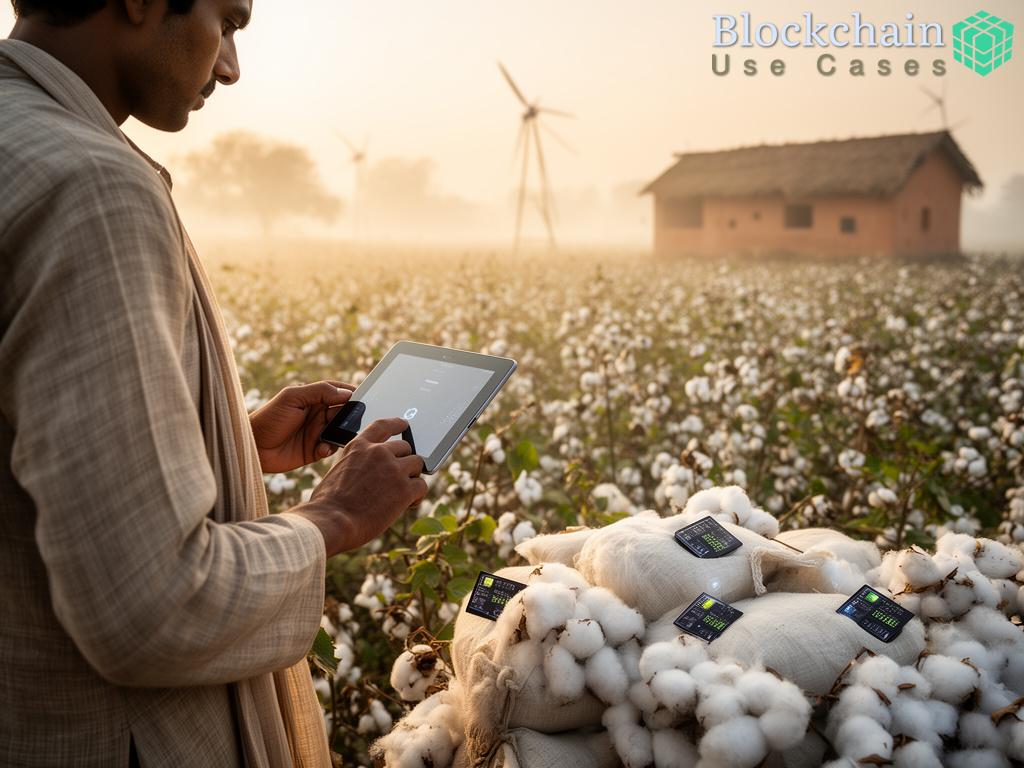Blockchain Technology Overview
In the last decade, blockchain technology has emerged as a revolutionary approach to data management, offering unparalleled transparency and security. Its decentralized nature ensures that transactions and records are not only tamper-proof but also traceable, providing stakeholders in various sectors with a reliable means of verifying data integrity. In the context of livestock supply chains, this technology can play a pivotal role in enhancing animal welfare standards, ensuring that every step from farm to table can be monitored and verified.
At its core, blockchain technology consists of several essential components that work together to create a secure and efficient system. Understanding these components is critical for grasping how blockchain can transform livestock supply chains:
- Decentralization: Unlike traditional databases, blockchain operates on a peer-to-peer network, which eliminates the need for a central authority. This decentralization enhances trust among participants in the supply chain.
- Immutability: Once data is recorded on the blockchain, it cannot be altered or deleted. This feature ensures a permanent, transparent record of all transactions.
- Smart Contracts: These are self-executing contracts with the terms directly written into code. They automate processes and ensure compliance with animal welfare standards without the need for intermediaries.
- Transparency: All participants in the blockchain network have access to the same information, ensuring accountability and fostering trust among stakeholders.
The implementation of blockchain technology in livestock supply chains offers numerous benefits that enhance animal welfare standards. By facilitating real-time tracking of livestock and their conditions, stakeholders can ensure compliance with welfare regulations. Here are some notable applications:
| Application | Description |
|---|---|
| Traceability | Blockchain allows for the complete traceability of livestock, from birth to slaughter, providing information on their treatment and living conditions. |
| Verification of Standards | Using smart contracts, compliance with animal welfare standards can be automatically verified, reducing the risk of fraud. |
| Consumer Confidence | Consumers can access verified information about the welfare of the animals they are purchasing, enhancing trust in the brands they support. |
Implementation of Blockchain in Livestock Supply Chains
As the livestock industry faces increasing scrutiny regarding animal welfare, the integration of blockchain technology offers a transformative solution. Implementing this innovative approach is not merely an upgrade to existing systems; it represents a fundamental shift in how data is managed, shared, and trusted throughout the supply chain. By leveraging blockchain, stakeholders can ensure that every aspect of animal care is documented, verified, and accessible, fostering an environment of accountability and transparency.
To achieve effective implementation, the first step involves engaging all stakeholders, from farmers and processors to retailers and consumers. Collaboration is key, as each participant must understand their role within the blockchain framework. This collective effort ensures that data is consistently recorded and updated, creating a comprehensive digital ledger that reflects the true status of animal welfare from birth to market.
With traditional supply chain systems often plagued by inaccuracies and delays, the adoption of blockchain technology significantly enhances data accuracy and accessibility. Each transaction involving livestock is recorded as a block in the chain, creating a permanent and unchangeable record. This level of detail ensures that all stakeholders have access to real-time information regarding the treatment and handling of animals.
The use of smart contracts further accelerates this process by automating compliance checks against established animal welfare standards. These contracts eliminate ambiguity by enforcing predefined rules that trigger actions only when certain conditions are met. For instance, if a livestock facility fails to meet welfare standards, the smart contract can automatically halt transactions, effectively safeguarding animal wellbeing.
In an era where consumers are increasingly concerned about the origins and treatment of their food, blockchain technology serves as a powerful tool for fostering consumer trust. By providing verified data regarding the entire lifecycle of livestock, brands can communicate their commitment to animal welfare more effectively. This transparency not only enhances brand loyalty but also encourages consumers to make informed purchasing decisions.
Moreover, the traceability offered by blockchain allows consumers to investigate the treatment of animals right down to the farm level. With just a scan of a QR code on packaging, consumers can access detailed reports on how and where the livestock was raised. This level of transparency strengthens the connection between consumers and producers, ultimately leading to a more conscientious food system.
Benefits of Enhanced Animal Welfare Tracking
The integration of blockchain technology into livestock supply chains heralds a new era of accountability and transparency regarding animal welfare. By offering a comprehensive tracking mechanism, stakeholders can not only meet regulatory demands but also foster a culture of ethical farming practices. The enhanced tracking capabilities provided by blockchain allow for a robust verification system that can significantly impact consumer confidence and industry standards alike.
Improved Compliance and Accountability
One of the most significant advantages of employing blockchain for animal welfare tracking is the ability to ensure strict compliance with established welfare standards. Each transaction recorded on the blockchain serves as an immutable proof point of adherence to these standards. This structured oversight minimizes the risk of violations that could arise from negligence or fraudulent practices. As a result, producers are more likely to maintain high welfare conditions, knowing that their practices are being monitored and recorded in real-time.
Enhanced Consumer Trust and Engagement
In today’s digital age, consumers are increasingly motivated to understand the origins of their food and the ethical implications of their choices. Blockchain technology empowers consumers by providing transparent access to detailed information regarding the treatment of livestock throughout the supply chain. With the ability to verify animal welfare claims directly through a simple scan of a QR code, consumers can make informed decisions that align with their values. This level of transparency builds a stronger connection between brands and their customers, ultimately driving brand loyalty.
Data-Driven Decision Making
The wealth of data generated through blockchain tracking offers significant insights into livestock management practices. Stakeholders can analyze trends in animal welfare, identify areas for improvement, and implement evidence-based strategies to enhance overall animal care. The data can reveal patterns related to animal health, behavior, and even environmental conditions, enabling farmers and processors to adjust their practices proactively. Such informed decision-making not only benefits the animals but also enhances operational efficiency and profitability.
Challenges and Limitations of Blockchain Adoption
While the potential of blockchain technology to revolutionize animal welfare tracking in livestock supply chains is immense, its adoption is not without significant challenges. Stakeholders must grapple with various technical, operational, and cultural barriers that can impede the seamless integration of this innovative solution into existing systems. Understanding these challenges is essential for stakeholders who aim to leverage blockchain effectively.
One of the primary hurdles in adopting blockchain technology is the technical complexity involved. Many stakeholders in the livestock supply chain, particularly small to medium-sized enterprises, may lack the necessary technical expertise to implement and maintain blockchain systems. Additionally, integrating blockchain with existing supply chain management solutions can pose challenges, as these systems often rely on legacy technologies that are not inherently compatible. The need for standardized protocols for data exchange further complicates matters, as discrepancies in data formats can lead to inefficiencies and miscommunication among participants in the supply chain.
The regulatory landscape surrounding blockchain technology remains ambiguous, particularly in the context of animal welfare standards. Different regions may have varying regulations, making it difficult for stakeholders to navigate compliance requirements. Furthermore, the decentralized nature of blockchain raises questions about who is accountable for maintaining standards and ensuring compliance. This uncertainty can deter investment in blockchain solutions, as stakeholders may be hesitant to commit resources without clear guidance on regulatory expectations. Moreover, engaging in the necessary dialogue with regulatory bodies to establish frameworks that support blockchain adoption can be a time-consuming process.
Beyond technical and regulatory challenges, there exists a palpable cultural resistance to adopting new technologies within the livestock industry. Many stakeholders are accustomed to traditional practices and may be skeptical about the benefits of blockchain. This resistance is often compounded by a lack of understanding of how blockchain works and its potential advantages for animal welfare tracking. To overcome this barrier, effective change management strategies must be implemented, emphasizing the long-term benefits of transparency, accountability, and consumer trust that blockchain can provide. Stakeholders need to be educated on the transformative potential of blockchain, fostering a culture that embraces innovation rather than shying away from it.
Future Trends in Blockchain and Animal Welfare
As the livestock industry evolves, the integration of blockchain technology is set to reshape how animal welfare standards are monitored and enforced. The continuous advancements in blockchain, combined with growing consumer awareness regarding ethical farming practices, suggest a future where transparency and accountability become the norm rather than the exception. These innovations will not only enhance the integrity of the supply chain but also drive a more ethical treatment of animals.
In the coming years, we can expect to see an increased convergence of smart technologies with blockchain applications within livestock supply chains. The integration of IoT devices, such as sensors and GPS trackers, will facilitate real-time data collection regarding animal health and living conditions. This data will be recorded on the blockchain, creating a comprehensive, immutable record that can be accessed by all stakeholders.
Moreover, the push for interoperability among various blockchain platforms will streamline processes and enhance collaboration across the supply chain. By establishing standardized protocols for data sharing, stakeholders can ensure that information flows seamlessly, enabling quicker decision-making and more effective compliance checks against animal welfare standards.
As consumers become increasingly concerned about the origins of their food, the demand for transparency in animal welfare practices is expected to rise. Blockchain technology will empower consumers to make informed choices by providing them with verified, traceable information about the livestock they purchase. This shift towards a consumer-centric approach will compel brands to prioritize ethical practices and adopt blockchain solutions to communicate their commitment to animal welfare more effectively.
Furthermore, the transition towards a more informed consumer base will likely lead to the development of new market segments focused on ethically sourced products. Brands that leverage blockchain to showcase their commitment to animal welfare will stand out in a crowded marketplace, gaining a competitive edge in consumer trust and loyalty.
To fully realize the potential of blockchain in tracking animal welfare standards, the establishment of supportive regulatory frameworks will be essential. Policymakers will need to collaborate with industry stakeholders to create guidelines that facilitate blockchain adoption while ensuring compliance with animal welfare regulations. This collaborative ecosystem will pave the way for innovation and accountability, fostering an environment where ethical practices can thrive.
In summary, the future of blockchain technology in livestock supply chains is poised to enhance animal welfare standards through the integration of smart technologies, a shift towards consumer-centric practices, and the establishment of supportive regulatory frameworks. As these trends unfold, stakeholders must remain proactive and adaptable to leverage the full potential of blockchain and ensure a sustainable and ethical food system.




